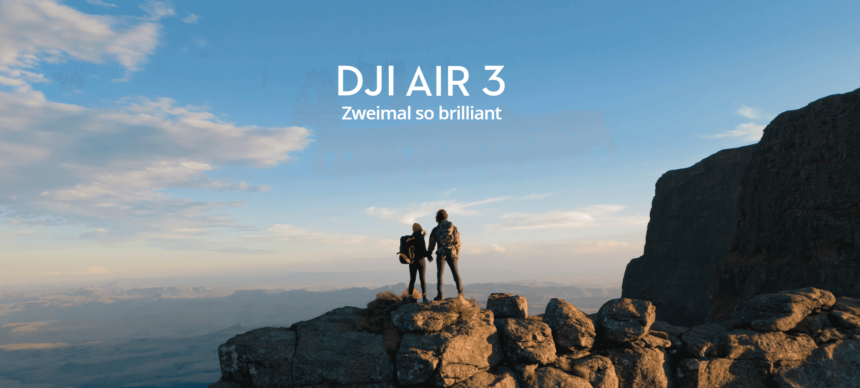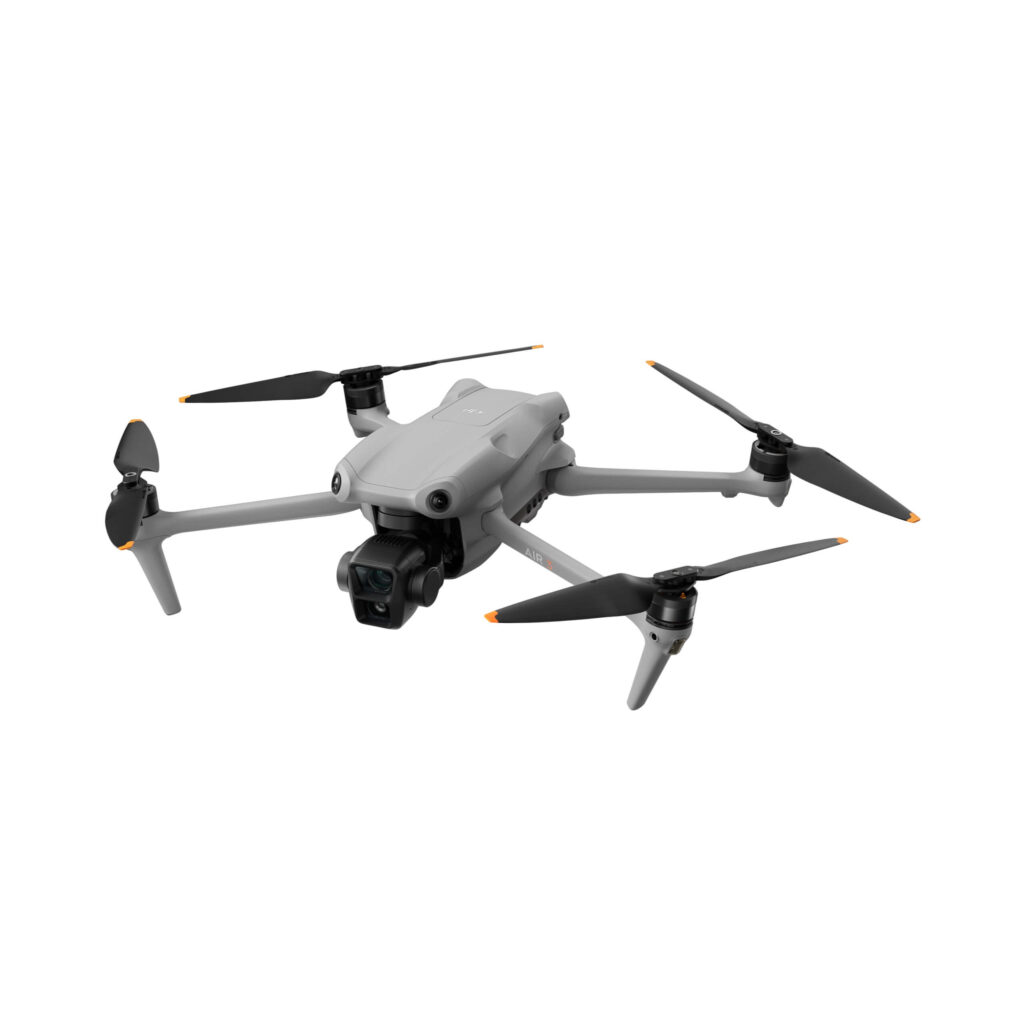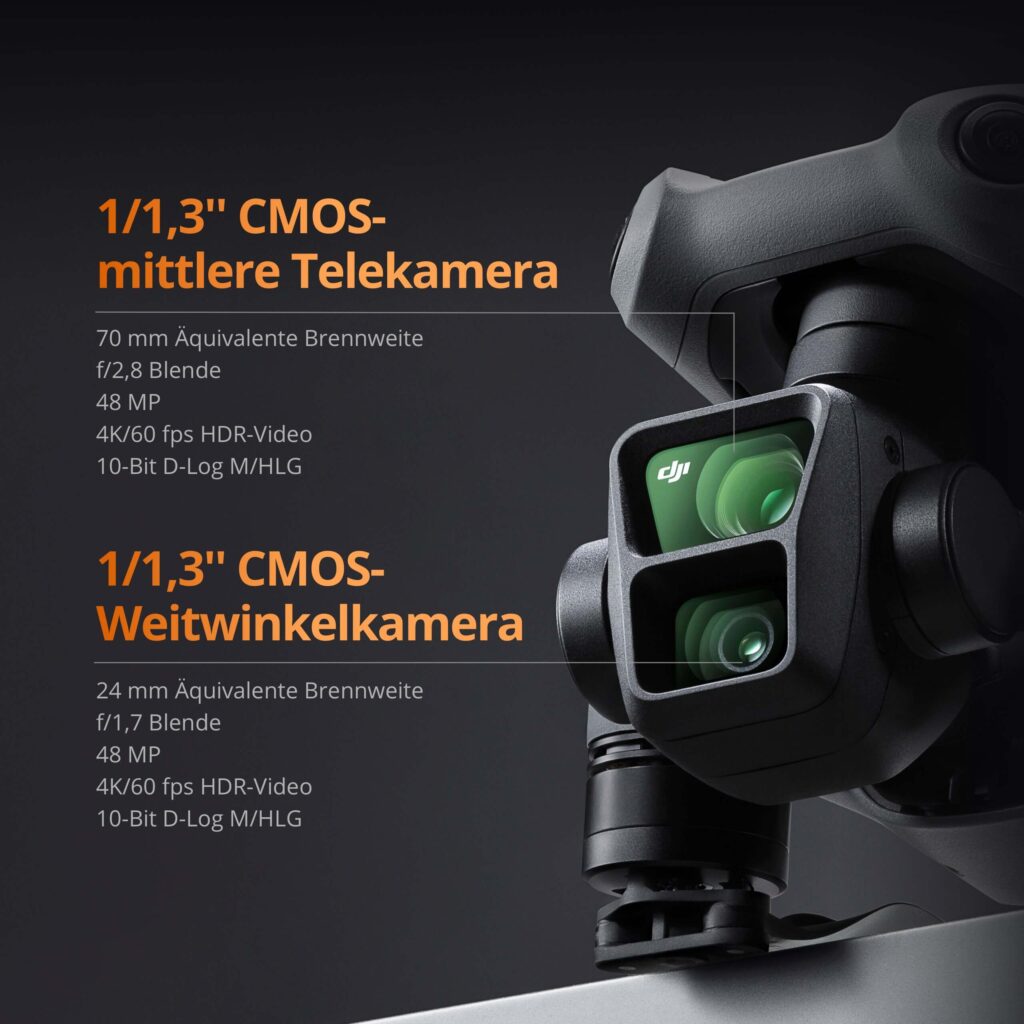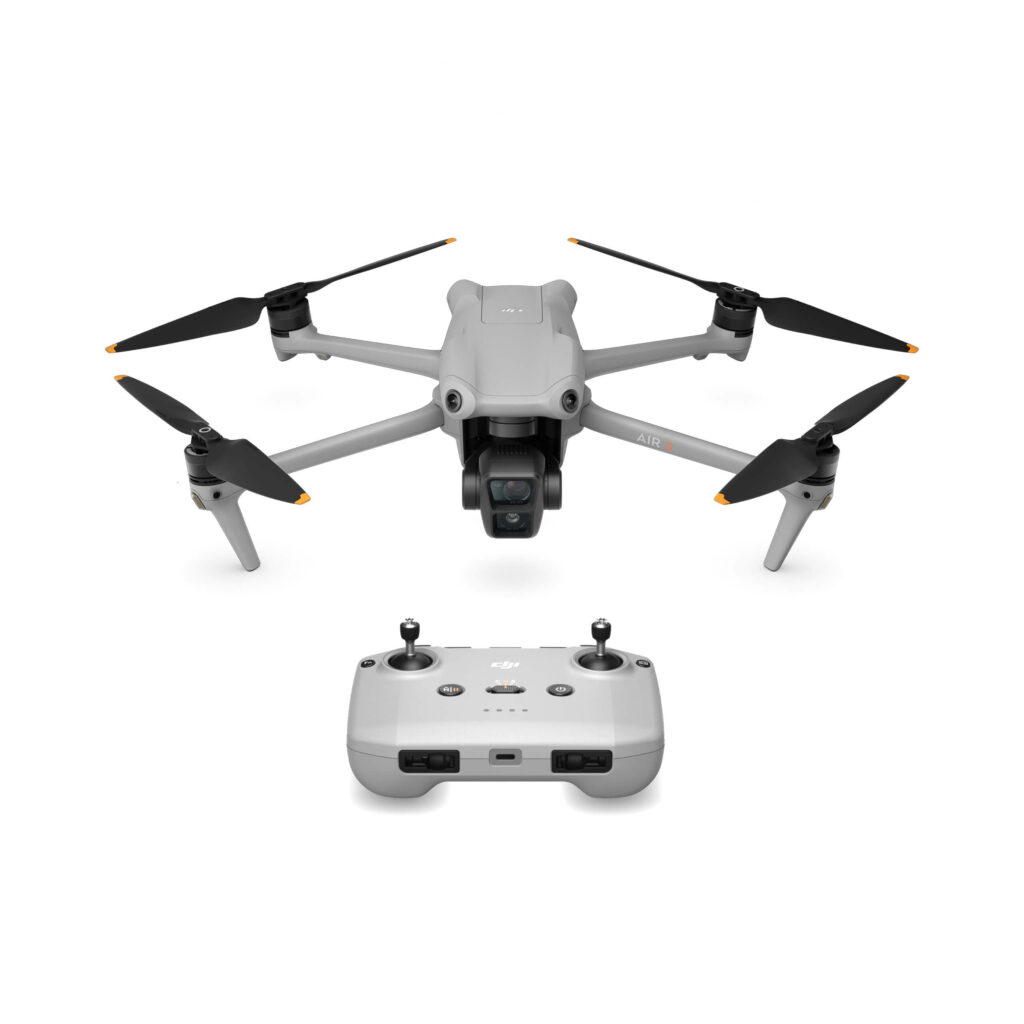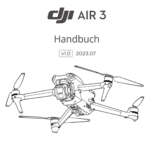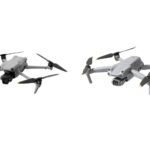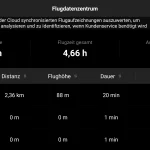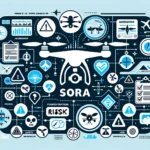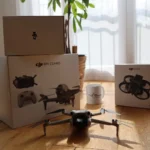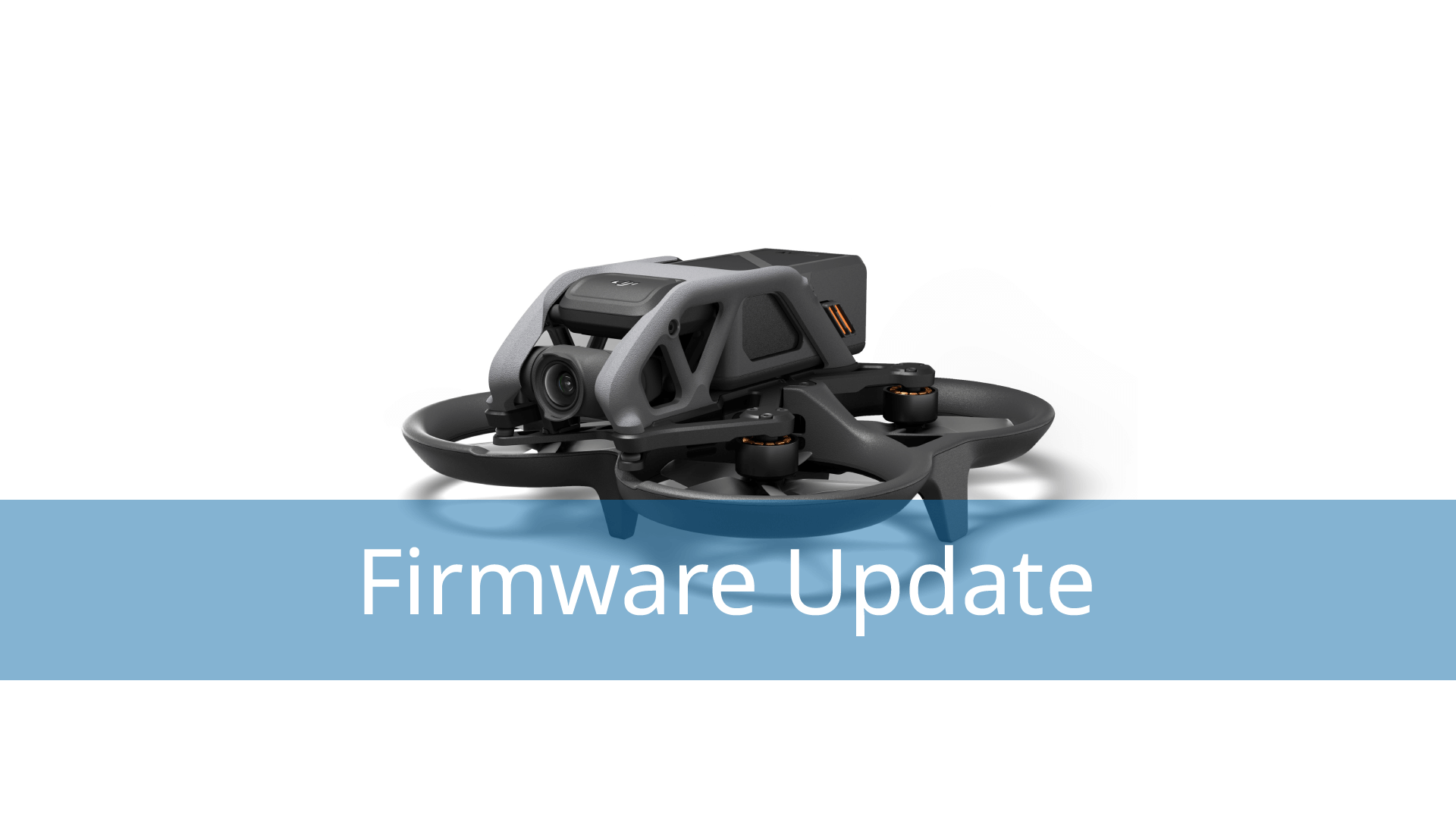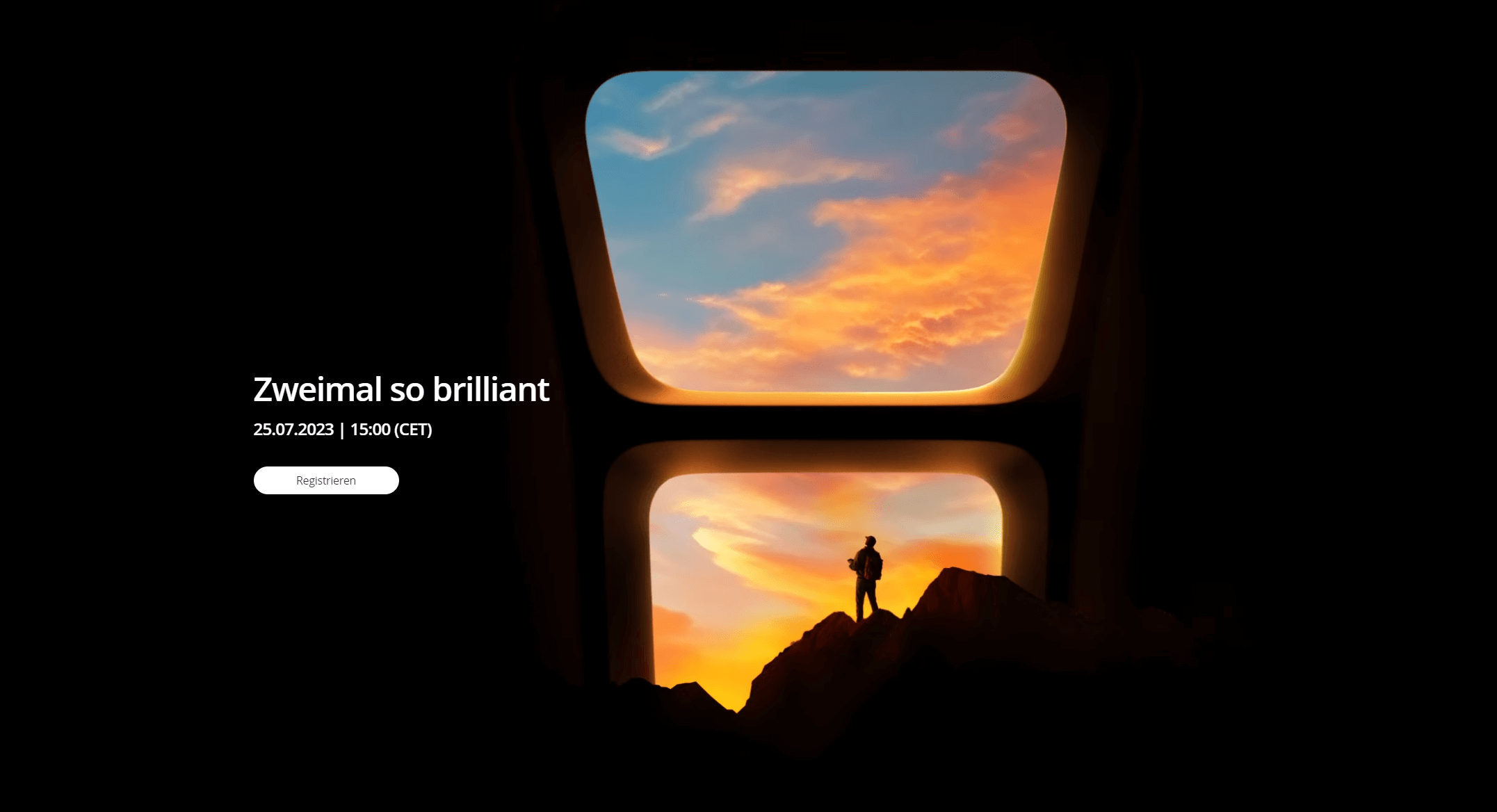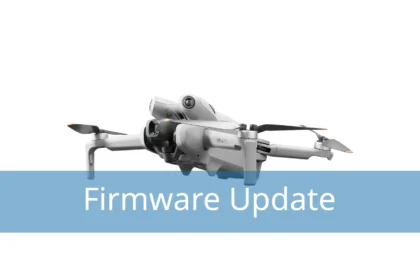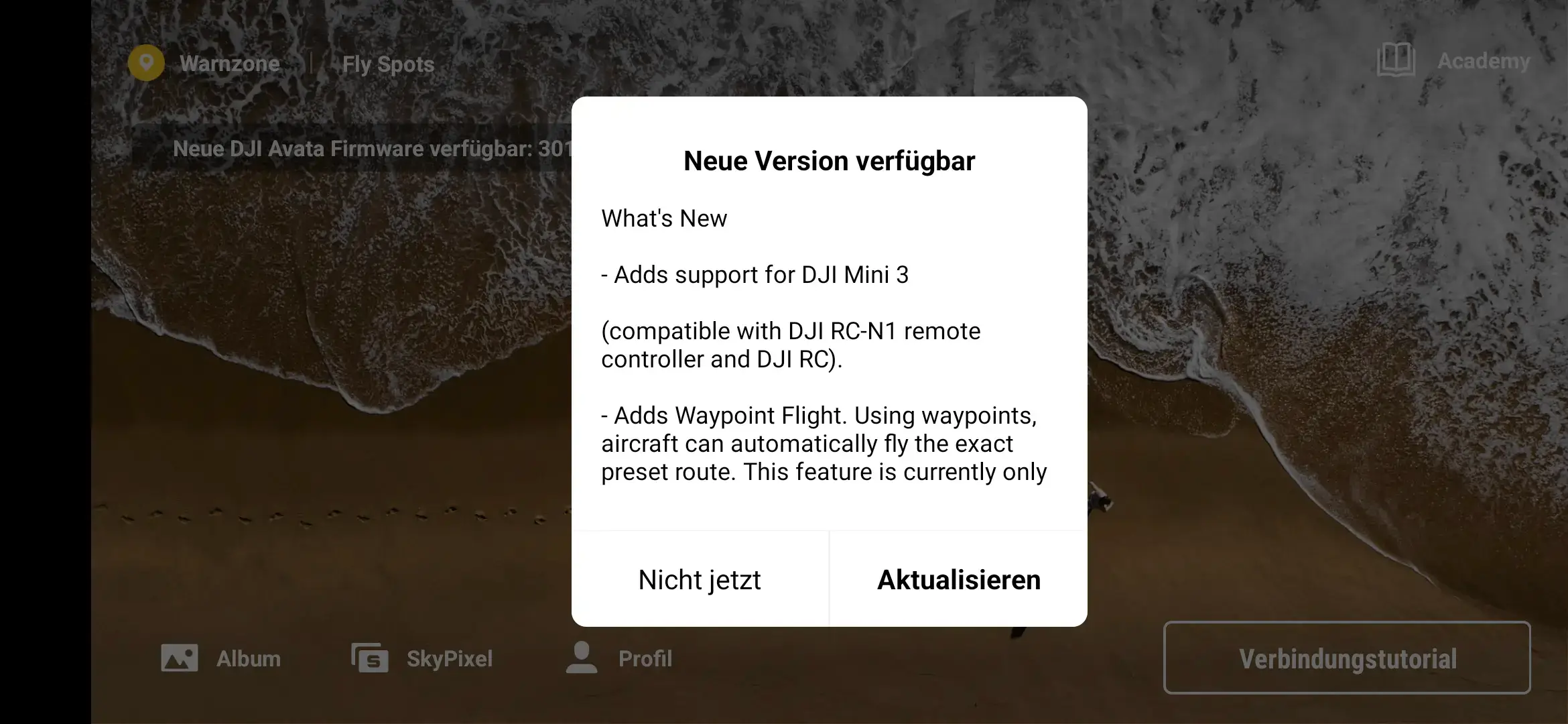As always on time, DJI has presented its new drone, the DJI Air 3. We summarise all the details, changes and technical data of the new model.
Numerous details about the DJI Air 3 were already known weeks in advance and the drone was no longer a real secret, even if DJI had not provided any information. Today, DJI officially unveiled the new Air 3 and announced all the missing data, the sales launch and also the technical details.
Once again, DJI has managed a very good update of an existing model. But let’s start one by one.
Keine Produkte gefunden.
This is the DJI Air 3
Main features
- Dual camera system (4k@100fps)
- Vertical recording
- C1 Label
- Omni-directional obstacle detection system
- OcuSync 4.0 transmission protocol
- RC-N2 / RC 2 remote controls
- Waypoint function
Design, size and weight of the Air 3
In the design of the drone, DJI goes for a mix of DJI Air 2S and DJI Mavic 3. The drone is clearly recognisable as a “typical” DJI drone and, like all comparable models, relies on the popular folding mechanism for the drone’s rotor arms.
The Air 3 weighs 720g and measures 258.8 × 326 × 105.8 mm when unfolded and 207 × 100.5 × 91.1 mm when folded (both without propellers). This is over 100g more than the previous model. However, the drone benefits from the C1 classification according to the EU Drone Regulation, which gives it some advantages when flying in the Open category.
Dual camera system
As is often the case, the most striking feature is the camera system. With the Air 3, DJI relies on a dual camera consisting of a 24 mm wide-angle lens (f/1.7) and a 70 mm telephoto lens (f/2.8). Both cameras support a video resolution of up to 4k with 100 fps and photos with a resolution of up to 48MP. Both systems are based on a 1/1.3 inch CMOS sensor.
The special feature of the camera: as with the DJI Mini 3, it can be rotated by 90° to provide true vertical shots that are particularly suitable for direct sharing on social media.
Flight time and airspeed
In terms of flight time, the Air 3 makes a leap forward and, according to official data, stays in the air for up to 46 minutes. Even though this value will probably never be reached in practice, it is a considerable increase over the 31 minutes of the predecessor model.
The maximum flying speed is around 75 km/h. In European regions, however, it is limited to around 68 km/h.
Flight altitude and range
For the sake of completeness, the rather theoretical values of maximum flight altitude (6000m) and flight distance (32 km) should also be mentioned here.
Battery
Higher weight, longer flight time – this calls for a more powerful battery. So it is that the Air 3 can be equipped with a 267g heavy and 4241 mAh Li-Ion 4S battery.
Control of the Air 3
There are two new models to choose from for the Air 3 controller. DJI is releasing new versions of the well-known standard remote control RC-N1 – now RC-N2 – as well as its RC 1 – now RC 2 – equipped with a screen and pre-installed app. The main feature of both remote controls is support for the new O4 transmission system (OcuSync 4.0, see below). Visually, they resemble their respective predecessor models.
App
There are few surprises when it comes to the app. The DJI Air 3 also relied on the familiar DJI Fly app, which will enable control of the new drone through a new update to version 1.11.0 and make the drone’s full range of functions usable.
More special features
Flight and recording modes
The drone features familiar DJI QuickShots such as Rocket, Dronie, Circling, Helix, Boomerang, Asteroid, as well as shooting modes such as Hyperlapse, Slow Motion, Night Mode and SmartPhoto 3.0. Also back is the QuickTransfer function, which allows quick wireless downloading of photos and videos from the drone to the smartphone.
Also included are the familiar FocusTrack features, which consist of Spotlight 2.0, ActiveTrack 5.0 and Point of Interest 3.0.
Omni-directional obstacle detection system
Another improvement is found in the sensors used. Like the larger Mavic 3, the Air 3 now has an obstacle detection system that works in all directions. This means that the drone detects obstacles in front of, next to, below, above and behind it during flight. This significantly increases flight safety during many flights.
Waypoint function
Surprisingly, the DJI Air 3 is the first drone in the Air series to support a real Waypoint function. A feature that was previously reserved for the larger and more expensive models in the house of DJI.
With the waypoint function, routes can be planned in advance and then flown automatically by the drone. A very useful and often requested feature, which until now could only be upgraded via third-party apps for some DJI models, if the necessary small change for larger models such as the Mavic 3 was not available. We are very excited about this feature!
O4 Transmission system
There is also a development in the transmission system. DJI introduces the latest version of its OcuSync technology with the Air 3: O4. Even smaller latencies with increased range at the same time.
Manual
More details about the functions and special features of the drone can be found in the official manual for the DJI Air 3. It is also worth a look for experienced drone pilots.
Price and availability of the DJI Air 3
The DJI Air 3 is already available in the DJI Online Store and at other retailers such as Amazon. Interesting: While shipping from the DJI Store will not begin until 01.08.2023, customers on Amazon can already unpack the drone at home on Thursday (27.07.2023) if they order today.
Keine Produkte gefunden.
How much does the fun cost? The DJI Air 3 starts at a price of 1099€ in the smallest version with the RC-N2 remote control. There is also a Fly More Combo for 1349€, which includes additional accessories in the form of batteries, charging station and bag and also uses the RC-N2 remote control. Above this is the Fly More Combo variant with the RC 2 remote control for a price of 1549€.
- Standard (RC-N2) – 1099€
- Fly More Combo (RC-N2) – 1349€
- Fly More Combo (RC 2) – 1549€
Compared to the starting price of the predecessor model, you have to pay 100€ more for the smallest version. In our eyes, this is perfectly acceptable for the added value offered. With the market launch of the Air 3, the DJI Air 2S will also be offered with a 200€ discount for 799€ in the official DJI Store until today (25.07.2023).
Technical data of the DJI Air 3
In the following table you will find the most important technical data of the Air 3.
| Fluggerät | DJI Air 3 |
|---|---|
| Abfluggewicht | 720g |
| Maße (ohne Propeller) | Gefaltet (ohne Propeller): 207 × 100,5 × 91,1 mm (L×B×H) Ausgefaltet (ohne Propeller): 258,8 × 326 × 105,8 mm (L×B×H) |
| Max. Flugzeit | 46 Minuten |
| max. Flughöhe | 6000 m |
| max. Fluggeschwindigkeit | 21 m/s 19 m/s in EU-Regionen. |
| Betriebstemperatur | -10° – +40°C |
| interner Speicher | 8 GB |
| Betriebsfrequenz (WiFi) | 2,400 bis 2,4835 GHz 5,725 bis 5,850 GHz |
| Sendeleistung (EIRP) | ? |
| Videoübertragungssystem | OcuSync 4 (O4) |
| Kamera | |
| Sensor | Haupt-Kamera: 1/1,3 Zoll CMOS, Effektive Pixel: 48 MP Telekamera: 1/1,3-Zoll-CMOS, Effektive Pixel: 48 MP |
| Objektiv | Weitwinkelkamera Sichtfeld: 82° Äquivalente Brennweite: 24 mm Blende: f/1,7 Fokus: 1 m bis ∞ Mittlere Telekamera Sichtfeld: 35° Äquivalente Brennweite: 70 mm Blende: f/2,8 Fokus: 3 m bis ∞ |
| ISO-Bereich | Video Normal und Zeitlupe: 100 bis 6.400 (Normal) 100 bis 1.600 (D-Log M) 100 bis 1.600 (HLG) Nacht: 100 bis 12.800 (Normal) Foto 100 bis 6.400 (12 MP) 100 bis 3.200 (48 MP) |
| max. Bildauflösung | Weitwinkelkamera: 8064 × 6048 Mittlere Telekamera: 8064 × 6048 |
| Videoauflösung | Weitwinkelkamera: H.264/H.265 4K: 3840 × 2160 mit 24/25/30/48/50/60/100* fps FHD: 1920 × 1080 mit 24/25/30/48/50/60/100*/200* fps Vertikale Aufnahme in 2,7K: 1512 × 2688 mit 24/25/30/48/50/60 fps Vertikale Aufnahme in FHD: 1080 × 1920 mit 24/25/30/48/50/60 fps Mittlere Telekamera: H.264/H.265 4K: 3840 × 2160 mit 24/25/30/48/50/60/100* fps FHD: 1920 × 1080 mit 24/25/30/48/50/60/100*/200* fps Vertikale Aufnahme in 2,7K: 1512 × 2688 mit 24/25/30/48/50/60 fps Vertikale Aufnahme in FHD: 1080 × 1920 mit 24/25/30/48/50/60 fps |
| Video-Format | MP4 (MPEG-4 AVC/H.264, HEVC/H.265) |
| Max. Video-Bitrate | H.264/H.265: 150 MBit/s |
| Weitere Daten | |
| Erkennungssystem | Omnidirektionales Sichtsystem (rundum Hinderniserkennung) |
| Alle technischen Daten der Air 3 gibt es auf der offiziellen DJI Seite | Offizielle Produktseite der DJI Air 3 |
Conclusion
So what can we say about the Air 3? DJI has once again pulled a very good drone out of its hat and delivered targeted improvements to the previous model. The new camera system consisting of two modules and the option to rotate them by 90°, the C1 label, the new sensors, the waypoint function and the new remote controls with O4 support with only a moderate price increase make the Air 3 a very interesting product for newcomers but also for owners of the previous model. Whether an update is worthwhile depends, as always, on your own preferences and the functions you need. In a direct comparison, however, the Air 3 is clearly superior to the Air 2S.
*The links contained in this article are so-called affiliate links. With these links DeinDrohnenpilot.de gets a commission for mediated purchases. The price does not increase for the customer.
Letzte Aktualisierung am 2025-04-22 / Affiliate Links / Bilder von der Amazon Product Advertising API


